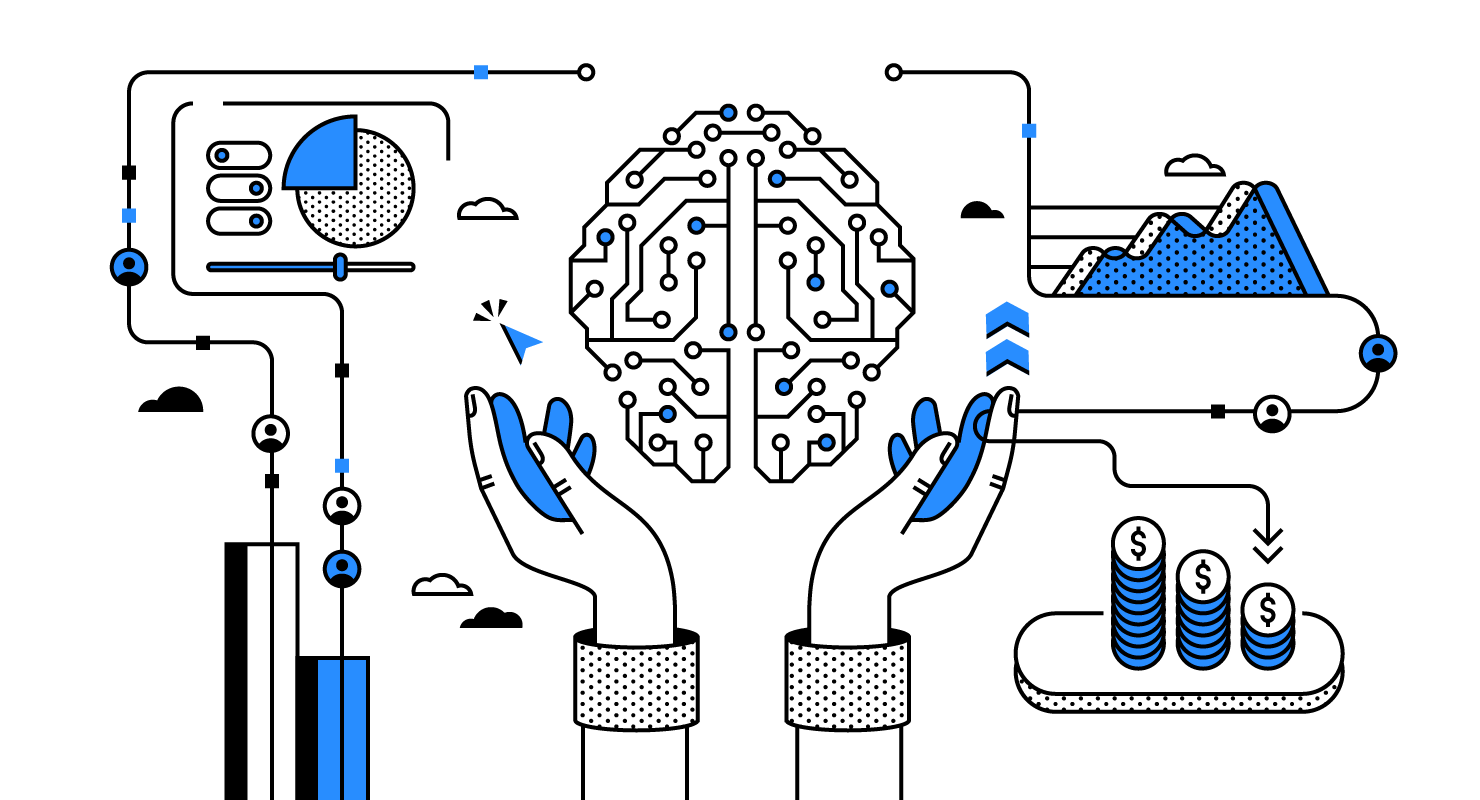Matthew Miller
Principal Analyst at G2
(AI, Automation, and Analytics)
Matthew Miller is an accomplished Senior Research Analyst at G2, known for his analytical acumen and strong understanding of market trends. With a diverse experience encompassing journalism, education, and AI, Matthew has built a solid reputation across various sectors. He is particularly renowned for his work in AI, automation, and analytics, offering valuable insights and conducting comprehensive research for vendors in these fields.
As a seasoned translator and linguist, Matthew has also worked with Hebrew and Yiddish languages and co-founded VAICE, a non-profit voice tech consultancy firm. These experiences have further enriched his perspective, allowing him to approach research and data with a unique, well-rounded viewpoint.
Matthew's contribution to the tech industry extends beyond research and analysis. He has actively engaged with the community through webinars and podcasts, sharing his knowledge alongside the likes of Descript and Synthesia, and participating in important discussions on 'This Week In Voice.' Whether discussing the growing use of video in business growth, conversational AI in education, or the role of AI in content creation, Matthew's insights have consistently enlightened and informed the audience.
Moreover, Matthew's prolific writing in technology research is widely recognized. His articles covering a range of topics from generative AI, MLOps, AI trends, to data quality and commoditization of algorithms are testament to his expertise and ability to translate complex concepts into understandable content. His reports on significant industry events, such as the acquisitions by McKinsey and ServiceNow or the funding rounds of Hugging Face and Labelbox, keep readers updated on the latest trends and shifts in the AI and analytics sector.
Matthew's passion for data, combined with his unique blend of skills and experiences, make him a significant voice in the field of AI and analytics. His work continues to educate, inform, and shape understanding of these rapidly evolving technologies.
G2 Category Ownership
Matthew Millers has a comprehensive and extensive portfolio in the tech domain, holding management and ownership roles across a diverse range of categories on G2. His scope includes Analytics Platforms, Business Intelligence, Data Visualization, Embedded Business Intelligence, Location Intelligence, Data Virtualization, Drone Analytics, Enterprise Search Software, Insight Engines, Other Analytics, Predictive Analytics, Statistical Analysis, Text Analysis, Time Series Intelligence, and Visitor Behavior Intelligence.
Within the realm of Artificial Intelligence, he commands AI & Machine Learning Operationalization, Conversational Intelligence, Bot Platforms, Chatbots, Intelligent Virtual Assistants, Natural Language Processing (NLP), Natural Language Generation (NLG), Natural Language Understanding (NLU), Text to Speech, Data Labeling, Data Science and Machine Learning Platforms, Deep Learning, Artificial Neural Network, Image Recognition, Voice Recognition, Generative AI, Synthetic Media, Machine Learning, Synthetic Data, and Video Surveillance.
In IoT and big data sectors, Matthew is responsible for Connected Worker Platform, Digital Twin, IoT Analytics Platforms, IoT Connectivity Management, IoT Development Tools, IoT Device Management Platforms, IoT Edge Platforms, IoT Operating Systems, IoT Platforms, Other IoT, Big Data Analytics, Big Data Processing and Distribution, Event Stream Processing, Time Series Databases, and Stream Analytics.
He also controls the categories of Guest Wi-Fi Providers, Virtual Routers, WAN Edge Infrastructure, WAN Optimization, Web Accelerator, Web Client Accelerator, Web Server Accelerator, and Web Data Providers. In the realm of digital process management, his scope extends to Digital Employee Experience (DEX) Management, Business Process Management, Business Process Simulation, Decision Management Platforms, Digital Process Automation (DPA), Other Process Automation, Process Mining, Robotic Process Automation (RPA), and Workflow Management.
Matthew also manages IoT Testing Services, IoT Implementation Services, Managed IoT Services, Robotic Process Automation (RPA) Consultancy Services, Artificial Intelligence Consulting, Business Intelligence (BI) Consulting, Business Process Management (BPM) Services, IoT Consulting Services, Tableau Consulting, Log Analysis, Qlik Channel Partners, and Tableau VARS. Overall, Matthew Millers' portfolio is expansive and all-encompassing, testifying to his wide-ranging proficiency in these tech sectors.

What is Generative AI: Synthetic Media, LLMs, and More
Generative AI has taken the world by storm, transforming how we create, consume, and interact with various forms of media. In this blog post, we'll dive into the different flavors of generative AI, including synthetic media, which includes image, video, text, and audio generation. We'll also discuss large language models (LLMs) and diffusion models, which are key components of generative AI technologies. With AI tools, in general, becoming easier to use and cheaper, the time is ripe for business users to leverage this technology to make a significant impact on their work and output.

Bringing AI to Production: McKinsey Acquires Israeli MLOps Startup Iguazio
On January 23, 2023, McKinsey announced its acquisition of Iguazio, a provider of AI & machine learning operationalization (MLOps) software. With over 70 experts in data and AI, the addition of Iguazio's technology will enable leading consultancy firm McKinsey to accelerate and scale AI deployments for clients. Thus, the play is not (just) about putting more software under McKinsey’s belt.

2023 Trends in AI: Cheaper, Easier-to-Use AI to the Rescue
In 2023, we expect to see a rise in the adoption of data science and machine learning platforms, especially ones that are cheaper and easy to use.

Machine Learning Startup Hugging Face Valued at $2 Billion with New Funding
Hugging Face, a startup that helps businesses build, train, and deploy state-of-the-art machine learning models, announced its Series C funding on May 9, 2022, raising $100 million. Lux Capital led this round, adding Hugging Face to its over 40 investments in the artificial intelligence (AI) and machine learning (ML) space. With this funding, Hugging Face joins the double unicorn club with a valuation of $2 billion.

What You Wanted to Know About RPA But Were Afraid to Ask
RPA software is a technological solution for an age-old problem: executing repetitive tasks in an automated fashion. We have seen this type of solution arise in the industrial revolution when what was previously accomplished by humans started to be performed by human-operated machines. Now, we take this type of machine-human collaboration for granted, sometimes forgetting how much we interact with and rely on machines. Everything from car manufacturing to farming relies on this type of symbiosis.

The Importance of Data Quality and Commoditization of Algorithms
Algorithms. Algorithmic. Machine learning. Deep learning. If you’re reading this piece, there is a good chance you have come across these terms at some point. An algorithm probably recommended this article to you. The umbrella term for all of the above is artificial intelligence (AI), which takes data of different flavors and provides you with predictions or answers based on that. There is a good chance you have benefited from this technology in some way, whether in a map application, image search from your favorite retailer, or intelligent autocomplete.

Labelbox’s $110 Million Fundraise and the Importance of Labeled Data
Labelbox, a startup that focuses on data labeling, announced its Series D funding on January 6, 2022, raising $110 million. Softbank’s Vision Fund II led this round.

Data Trends in 2022
2022 TRENDS PREDICTION
The coming year is when data will be in the limelight. Data will no longer be something that boosts the effectiveness of companies or something which aids their success, instead, it will determine their success.

How to Make Algorithms Which Explain Themselves
Back in 2019, I wrote my predictions of advancements we'd see in AI in 2020. In one of those predictions, I discussed the perennial problem of algorithmic explainability, or the ability for algorithms to explain themselves, and how that will come to the fore this year. Solving this problem is key to business success, as the general public is becoming increasingly uncomfortable with black-box algorithms.

H2O.ai Raises $100 Million to Accelerate AI Adoption
Back in 2019, I wrote my predictions of advancements we'd see in AI in 2020. In one of those predictions, I discussed the perennial problem of algorithmic explainability, or the ability for algorithms to explain themselves, and how that will come to the fore this year. Solving this problem is key to business success, as the general public is becoming increasingly uncomfortable with black-box algorithms.

DataRobot and the Quest for End-to-End Data Science
Boston-based DataRobot, a company which provides users with a data science and machine learning platform for building, deploying, and maintaining AI, is on a roll. Data science and machine learning is a process in which patterns in data are examined in order to make predictions and better understand the data at hand.

Features Are Key To Choosing Robotic Process Automation (RPA) Software
Automation. Automation. Automation.
This word is top of mind for many business leaders—“How can we make more money? How can we make our business more streamlined? What solutions are out there that can help us achieve this goal?”

UiPath’s Recent $35 Billion Valuation Shows the Impact of Automation
Have you ever felt like a million bucks? How about $35 billion? Personally, I don’t know what it feels like, but if you’re wondering, I’d recommend asking UiPath, Leader on the G2 Grid® Report for Robotic Process Automation (RPA) for Winter 2021. Having raised $750 million in their latest fundraise (Series F), they are now worth a whopping $35 billion.

2021 Trends in Self-Service and All-Service Analytics
As I’ve mentioned in the past, data is like music, made up of different components, with the spaces, gaps, and rhythm critical to understanding and appreciating the whole. It is an important component of modern businesses, so sellers are exploring new ways to allow businesses to store, interact with, and analyze their data.

2021 Trends in Synthetic Data Generation and Detection
We are living in the era of data. Companies are looking to utilize the data they collect to make more informed business decisions. Government organizations, for example, that have historically been slow to innovate, are looking to better understand the data that they are amassing to provide better care and support for their constituents.

ServiceNow Bolsters AI Capabilities With Acquisition of Element AI
On November 30, 2020, ServiceNow, a large cloud-based IT services company, announced their plans to acquire Canadian artificial intelligence (AI) startup, Element AI, which helps companies across industries deploy AI solutions. According to TechCrunch, the purchase price was around $500 million, with a valuation between $600 and $700 million.

Big Data Company Databricks Set to Launch SQL Analytics
On November 12, 2020, Databricks, a big data processing and distribution software company, announced that they are set to release SQL Analytics.

Analytics is in Fashion: Mode Analytics Raises $33 Million
This week, we saw Mode Analytics, a Leader in the Analytics Platforms category on G2, raise a $33 million Series D. Mode Analytics is bridging the gap between AI and analytics and is looking to help businesses extract value from data with machine learning and big data analytics. With over 50% of Fortune 500 businesses relying on Mode Analytics, they have processed 830 million queries for 300 thousand users.

Tech Companies Bridging the Gap Between AI and Automation
Automation and artificial intelligence (AI) are important, interrelated tools that help organizations streamline their processes and add intelligence to their workflows.

Stream Analytics Startup Confluent Raises $250 Million
Data is like music, made up of different components, with the spaces, gaps, and rhythm critical to understanding and appreciating the whole. Just as with music, data can be analyzed and enjoyed in real time (stream analytics software) or as a past, documented record (log analysis software).


